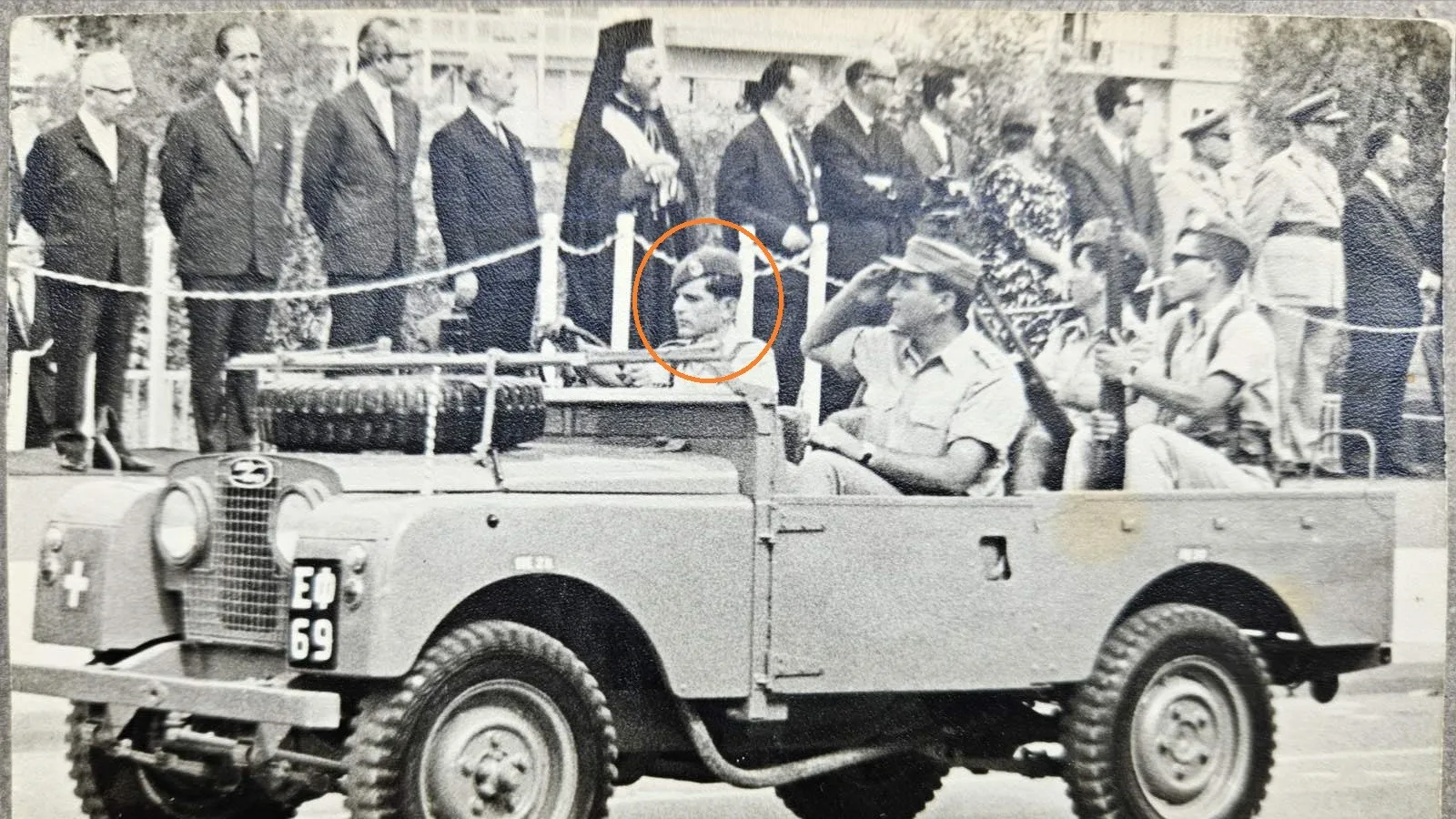As the anniversary of the second invasion of Cyprus approaches, Christakis Stylianou – former Prisoner Of War (POW) in the Turkish invasion of Cyprus in 1974 – speaks for the first time about his traumatic experiences of captivity.
By Andrea Garivaldis
Each year when July and August come around, it is a solemn time for Christakis Stylianou when Cypriots around the world commemorate the horrific events of 1974.
Fifty years have now passed since the Turkish troops marched through Cypriot towns with their tanks, but the personal horrors of the second Turkish invasion are just as raw and vivid as they were the day they occurred for Mr Stylianou.
“The Turkish military were advancing and were triggering the second invasion in mid-August and the people received no warning,” he said.
“There were sounds of gunfire, heavy bombings, Turkish planes in the sky, and machine gun fire. Army reservists had to go to their training base, except for those who owned a petrol station.
“They had to remain at their petrol station and fuel emergency and military vehicles. The word was spread that anyone found with military uniforms, or any ammunition, would be executed. A lot of our own people turned into traitors and were revealing information to the Turkish military.”
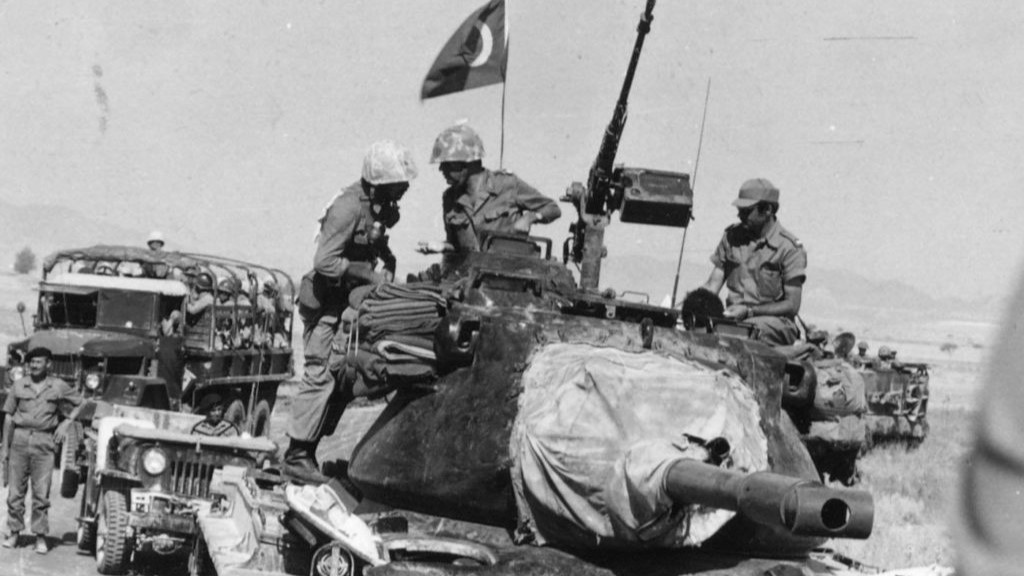
Mr Stylianou was on the front lines fighting alongside Major General Tasos Markou, who is highly regarded as one of Cyprus’ national heroes. Markou remains a Missing Person from the 1974 Turkish invasion to this day.
“I was in his unit and directly under Major General Tasos Markou and followed his orders. I was one of his right-hand men, driving him here and there in the car to visit camps, where he needed to take care of the transportation needs of soldiers exposed under the olive groves around Kythrea. I supported his movements, the army and the Cyprus police with transportation and refuelling vehicles,” he said.
“I saw a hero fight like a lion defending our homeland with a simple Martini rifle. Without weapons, he was defenceless in the heat of the war, while the Turkish troops were coming down the Pentadaktylos mountains and occupying the outposts.
“Tasos Markou protected us and kept us away from danger at times. He was responsible for the army in the area and ensured we felt safe under him. I am certain that his skilful management saved my life.”
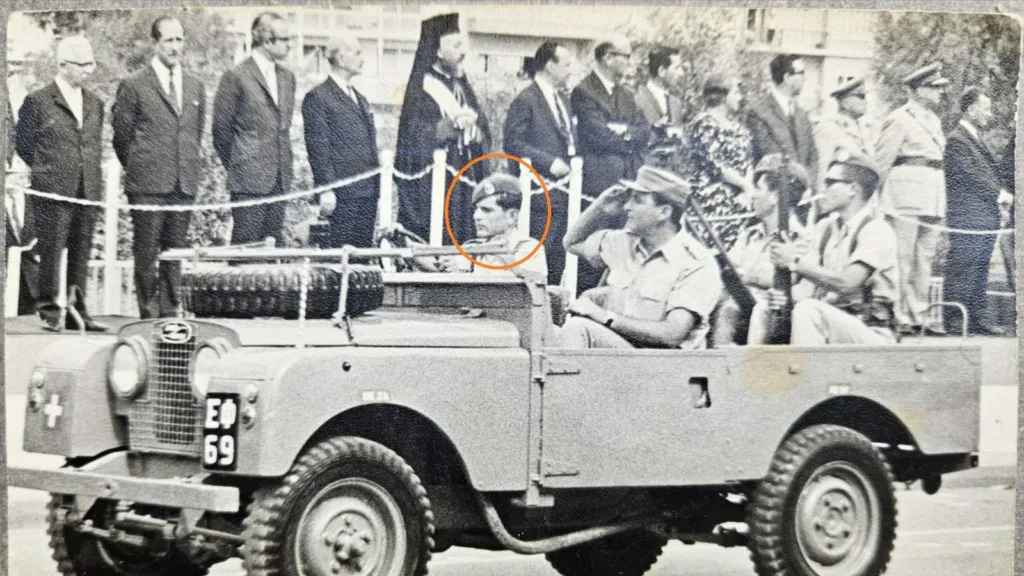
The night before Mr Stylianou was captured, he went home, while leaving others to look after the petrol station.
“I had changed into civilian clothes from my military reservist uniform and the next day, on Wednesday 14 August 1974, I was driving to Nicosia to escape the fighting,” he said.
“I did this after ensuring that none of the soldiers were left behind in the village. Our family was split up among thousands of other Cypriots who were displaced in the conflict while escaping to safety. I drove my car to a location we were told we would find our soldiers to assist us, but we only found Turkish army where Greek military were known to be stationed.
“I was forced to leave my car in the town of Mia Milia, not too far from where the free areas are now. The Turkish military found my driver’s licence in my car, which was under my name Christakis Stylianou. At the time they did not have photo ID. Later, when I was captured while on foot with a group of others, a last-minute decision to use my grandfather’s name, Takis Mina, saved me from being executed. At the time I did not realise that I had saved myself from execution as the Turkish troops found military clothing in my car and were to execute the owner Christakis Stylianou.”
Mr Stylianou was then detained by Turkish armed forces and spent almost three months in Turkish concentration camps as a POW.
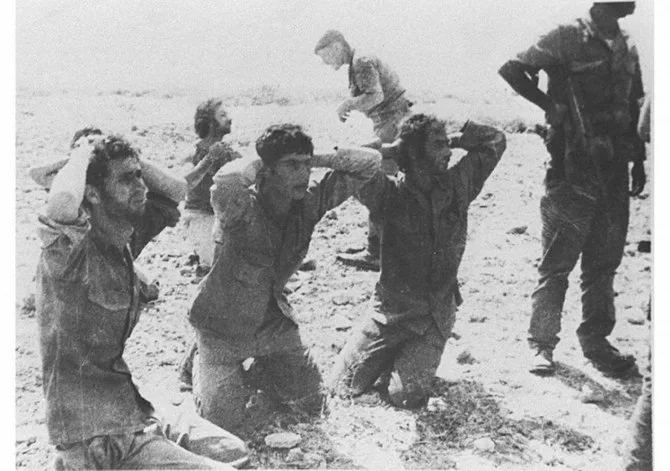
“The Turkish armed forces moved all the captured men by ship to Mersina, then we were put on trucks and transported to Adana, where we were kept for some days in the prisons under horrible conditions,” he said.
“We were blindfolded with our hands tied behind our backs most of the time. They then put us on buses and took us to Amasya. I think over 2,000 POWs had been illegally transferred from Cyprus and held in Turkish prisons.
“Those who were captured as POWs and kept in prison camps had to deal with harsh living conditions, enduring physical torture and maltreatment.
“Many of us were malnourished, severely wounded from regularly being beaten if we did not obey the most inhumane requests from the prison guards. We had to do physically demanding work and live in tough conditions and given little food. Just a small piece of bread and an olive was our average meal. The bread was usually half eaten by rats.
“Prisoners who attempted to escape from captivity were often executed. In Adana itself, the abuse was indescribable, and it was a test for human survival.
“The Turkish guards would kill rats and place them in our daily meal of legume soup and expect us captive prisoners to eat the same food for days. If we refused to eat it, the Turkish soldiers would strip us and beat us with a bat in front of everyone.”
Mr Stylianou recalls the daily bashings and whipping and how best friends would fight over a piece of bread.
“I remember how some men would distract each other so they can steal one another’s allocated meals, but we did rely on each other for support and survival,” he said.
In the 1974 BBC news footage inside Adana prison camp, where Mr Stylianou is also seen, the captive prisoners all said they were treated well by the Turkish army although it was not the case.
“What can I tell you, what else could we say? We were forced to say something positive under the fear of not being released and the risk of not returning to Cyprus. So, we declared that we were satisfied to avoid the dire consequences,” he said.
“We developed friendships as we had a common life experience of seeing the evil side of humans.
“After several days in Adana, they put us on buses and took us to Amasya, many hours away. With our eyes tied, we didn’t know where we were going. At Amasya, one of the guards, who we learned was from Trabzon, once took pity on me and gave me a candy. He tried to help me. He knew very little Greek. He told us that some ancestor of his was Greek. From such interpreters who knew some Greek, we were able to find out what was happening around us. The conditions in the prisons were again terrible, with beatings and hunger.
“Many of us POWs were exchanged by Cyprus and Turkey in late 1974, assisted by the International Committee of the Red Cross.
“From the point where we were released at the checkpoint, we were transported by bus to the Filoxenia Hotel in Nicosia, where they gave us some clothes to wear and a meal. They also gave us an injection for the protection of others in case we brought any disease, and I was given one Cyprus pound.
“I was released on 28 October 1974 – after 75 days in captivity. I considered myself lucky to be in the last group of people to be released and eventually reached safety. I was out alive, but sadly some of those I befriended were escorted out and never seen again, as they had been executed. Those who were not fortunate to get out were either confirmed dead or listed as Missing In Action, and hundreds of others remained unaccounted for. The next task was to reunite with our displaced families who we had no contact with for months.
“The summer of 1974 brought a lot of emotional upheaval to many families including mine who were forced to leave our home, business and possessions and having to start a new life all over again as a refugee.
“After losing so many friends and comrades, I feel that it is a duty for me to honour the memory of all those who were captured and imprisoned along with myself and to remember those who were killed or still missing and did not make it back home to reunite with their displaced family.”
Although 50 years have passed, Mr Stylianou honours the memory of all the POWs who were captive with him and he lays a wreath here in Australia – on behalf of the Prisoners of War Association of Cyprus from the Turkish invasion of 1974 – at various Hellenic events, on ANZAC Day and Remembrance Day.
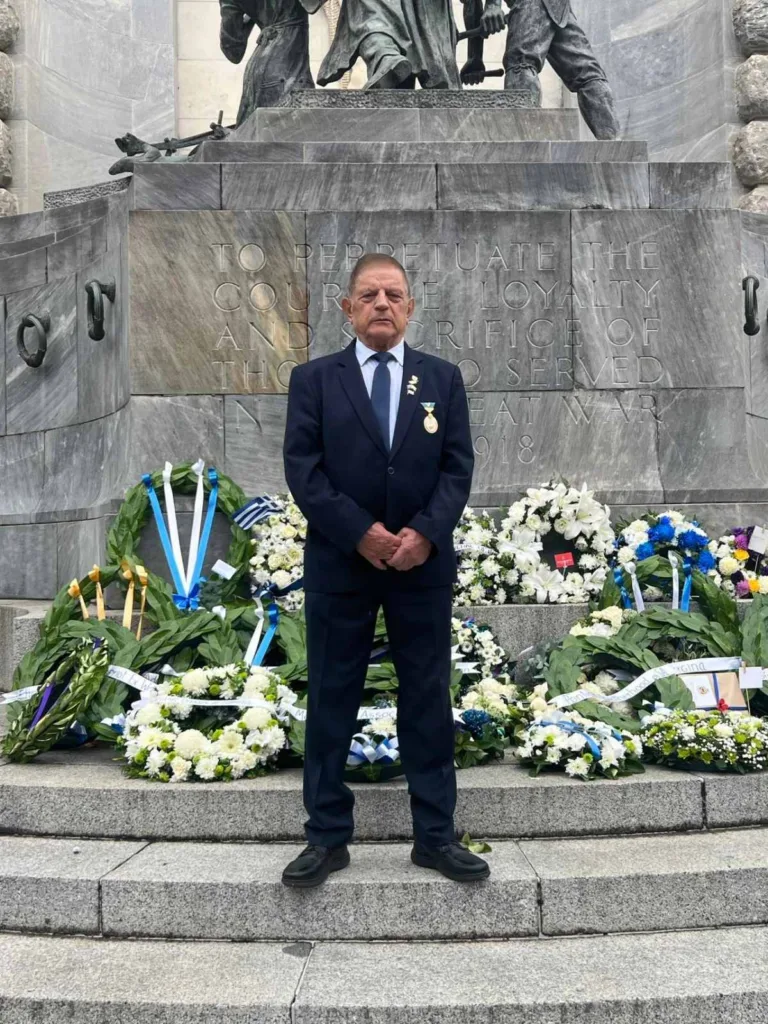
Mr Stylianou strives to ensure that his children and grandchildren have a passion for Cyprus and do not forget the service and sacrifice of those who fought for freedom. His daughter, Dr Andrea Stylianou, academic and journalist, has written a research thesis with a European Union “Research Excellence Scholarship” on the topic of the Missing Persons of Cyprus and the Diaspora of Cypriots in Australia affected by the Turkish invasion of 1974.
“These commemorations are an emotional moment where I pay tribute to those who endured the gruelling conditions in the hands of the enemies and to the many who never returned. The dream of a free Cyprus will never die,” he said.
